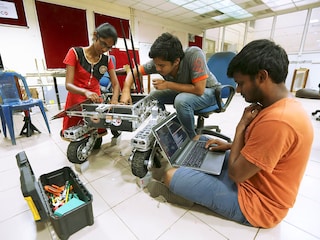Tech5: Alibaba's Joe Tsai warns of data centre bubble, zinc alternative to Li-io...
Forbes India's daily tech news bulletin with five headlines that caught our attention


Critics of the ongoing AI goldrush have pointed out the lack of real-world AI applications and the unsustainable spending by companies like Microsoft, Amazon, and Alphabet, who have pledged billions for AI infrastructure. Tsai raised concerns over data centre projects being funded without securing uptake agreements and cautioned that these investments are being made ahead of actual demand, potentially leading to a bubble.
Recently, major tech firms such as Google"s Alphabet, Microsoft, Amazon, and Nvidia, have made advancements in quantum computing. PsiQuantum is collaborating with the Australian and US governments to build quantum computers in Brisbane and Chicago, aiming for a useful machine by 2029 or sooner. Quantum computers have long existed but are only now nearing practical applications.
The sale being ‘secondary’ means Zepto itself isn’t raising any money by selling its shares, but some existing investors and employees can encash their holdings in the company. Zepto is seeking a deal for the sale that would value it at $5 billion, which was the private value investors placed on the Bengaluru startup in its last funding round last year.
The challenges include potential corrosion and sluggish kinetics, which require efficient catalysts for optimal performance. Companies like Salient Energy and Urban Electric Power are also working on zinc-based battery technologies for grid-scale applications. Professor Ranjit Bauri and research scholar Sai Vani Terlapu are leading the project at IIT-M.
Secretary S Krishnan emphasised the importance of achieving semiconductor self-sufficiency. The roadshow will showcase tech innovations, with 50 technology demonstrations, 25 deep-tech startups, and 25 venture capital firms participating. This initiative supports India"s goal of self-reliance in electronics innovation and manufacturing under the India Semiconductor Mission.
First Published: Mar 25, 2025, 10:36
Subscribe Now